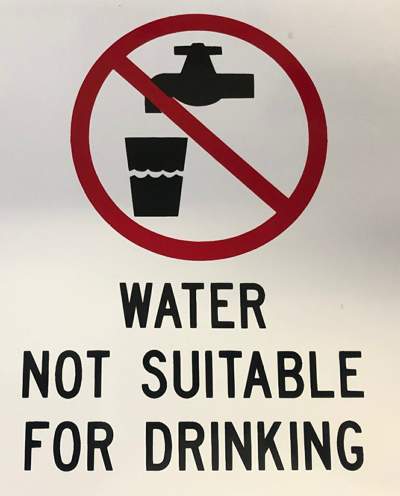 GMW reminds customers that water supplied by GMW is not suitable for human consumption without first being properly treated.
GMW reminds customers that water supplied by GMW is not suitable for human consumption without first being properly treated.
This includes water supplied at some of our facilities (e.g. recreational areas at GMW storages).
For more information refer to the customer information statement for water quality below. A PDF of this statement is also available for download. , opens in a new window be
To find out more information on private drinking water supplies contact Department of Health.
Customer Information Statement - Water Quality
Goulburn-Murray Water (GMW) is committed to providing information on the quality of water supplied to customers so that they can make informed choices about their use of the water. Under the Safe Drinking Water Act (2003), GMW must also advise customers of the non-potable nature of water supplied by GMW.
GMW supplies raw (untreated) water for irrigation, stock and domestic purposes and for other bulk entitlement commitments. The quality of the water can vary due to a variety of factors such as algal levels, land uses, changes in flow, floods and drought.
Water Supplied by GMW is not suitable for human consumption without first being properly treated.
Human consumption includes:
- showering
- bathing
- washing
- cooking
- ice making
- drinking
This includes water supplied at some of our facilities (e.g. recreational areas at GMW storages).
GMW works with catchment partners to identify ways of reducing the impacts to water quality from land use and activities in catchments. This includes water quality monitoring, implementation of land and water management plans and requiring that certain standards are met for developments.
GMW monitors its storages and supply systems for various water quality parameters, including nutrients, salinity and blue-green algae. This information is available by contacting reception on:
1800 013 357 or reception@gmwater.com.au
Collective entitlement holders should advise their customers/users that the water supplied is non-potable (i.e. not for human consumption), particularly if they run accommodation premises or food businesses, or if the general public has access to the water (e.g. through a public tap).